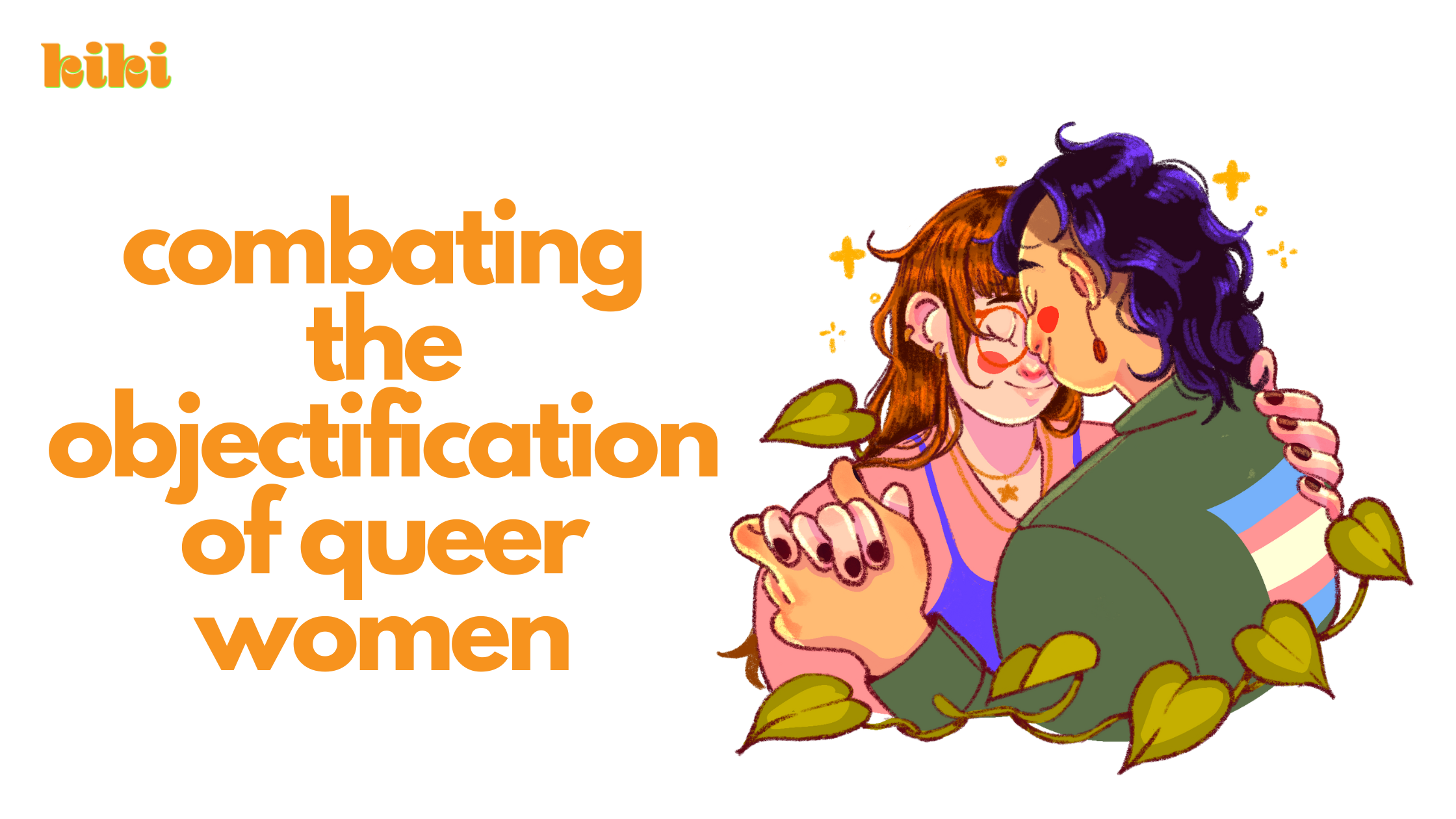
Understanding Objectification
Objectification occurs when an individual is reduced to their physical appearance or specific aspects of their identity, ignoring their humanity, feelings, and complexities. This dehumanizing behavior is not only disrespectful but also perpetuates harmful stereotypes and biases. Moreover, it’s important to recognize that this objectification also extends its impact to queer individuals who might not identify as women but are perceived as such, underlining the need for a broader perspective on this issue.
Common Ways Queer Women Are Objectified
1. Stereotyping Based on Appearance: One common way queer women are objectified is by reducing them to stereotypes based on their appearance. The media often portrays queer women as overly sexualized or fetishized, failing to recognize their diverse identities and experiences.
2. Fetishization: Fetishization in this context occurs when someone is attracted to a person solely because of their (real or perceived) sexual orientation. This reduces queer women to objects of desire, ignoring their individuality and emotional depth.
3. Invasive Questions: Asking intrusive questions about a queer woman’s personal life, such as their sexual preferences or history, objectifies them by focusing solely on their sexuality. (Krista, our founder, was once asked for a threesome by a man on the street when she mentioned her girlfriend.)
4. Hypersexualization: Portraying queer women as hypersexual beings reinforces stereotypes. This can be doubly true for queer Black women and other queer women of color, who face multiple marginalizations.
Understanding the Objectification of Queer Women
In addition to the common ways in which queer women are objectified, it’s important to delve into the underlying reasons for this issue. One significant factor is the historical and societal context that centers around male pleasure. The objectification of queer women often stems from a perspective that prioritizes the male gaze and sexual satisfaction, overshadowing the authentic experiences and identities of these women.
Furthermore, a prevailing assumption persists that all individuals are inherently attracted to men, perpetuating a narrow viewpoint that disregards the diverse spectrum of sexual orientations. This assumption not only erases the unique and valid identities of many queer women but also contributes to their objectification. By challenging this assumption and acknowledging the richness of various sexual orientations, we can actively work against the objectification of queer women.
In order to combat the objectification of queer women effectively, it is crucial to address not only the surface-level manifestations but also the deeper ideologies that perpetuate such harmful attitudes. By recognizing the historical biases and assumptions that underpin this objectification, we can strive for a more inclusive and respectful representation of queer women in all facets of society.
Combating Objectification with Empathy
1. Educate and Raise Awareness: Awareness is the first step toward change. Educate yourself and others about the harmful effects of objectification. Share informative resources on social media, engage in conversations, and attend workshops to spread the word.
2. Challenge Stereotypes: Celebrate the diversity within the LGBTQIA+ community. Challenge media representations that perpetuate stereotypes. Support content that portrays queer women as multifaceted individuals rather than one-dimensional characters.
3. Promote Intersectionality: Recognize that queer women have various identities beyond their sexual orientation, such as race, ethnicity, religion, and disability. Intersectionality matters; acknowledge and uplift the experiences of those with intersecting identities.
4. Respect Privacy: Avoid invasive questions about someone’s personal life, especially regarding their sexuality. Focus on building connections based on shared interests, passions, and experiences.
5. Amplify Voices: Give queer women a platform to share their stories and experiences. Amplify their voices by listening actively and uplifting their narratives. This helps break down stereotypes and promotes empathy.
6. Encourage Empowering Representation: Support media that portrays queer women authentically and positively. Representation matters, so back content that showcases their achievements, struggles, and personal growth.
7. Practice Respectful Language: Language shapes our perceptions. Use inclusive and respectful language when discussing queer women of the LGBTQIA+ community. Avoid derogatory terms and slurs that perpetuate objectification.
8. Build Empathetic Connections: Approach interactions with queer women as you would with anyone else — with respect, empathy, and genuine interest in their thoughts and experiences.
The Bottom Line
As we wrap up this important discussion, remember that objectifying queer women is not just rude; it perpetuates harmful stereotypes and denies them the respect they deserve. By educating ourselves, challenging stereotypes, and promoting empathy, we can combat objectification and contribute to a more inclusive and understanding society. Let’s work together to create a world where every individual, regardless of their sexual orientation, is valued for their humanity, emotions, and unique qualities.
________________________________________________________________
Download our app on our website!
Sign up for our biweekly newsletter to get our free Queer Pleasure Workbook!
If you enjoy our content and want to access in-depth interviews with experts, personal essays about sex and queerness, and want to support our mission to bridge the sex ed gap for queer folks, join us on Patreon.
We also have merch! Find cheeky queer, sex-positive t-shirts, totes, mugs, and stickers here.